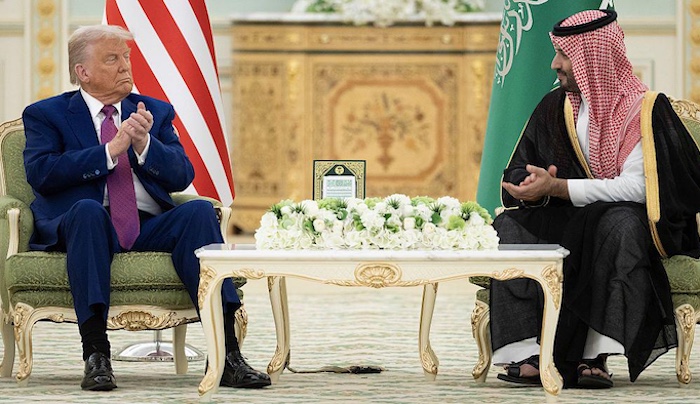
The United States will proceed with the sale of F-35 fighter jets to Saudi Arabia, President Donald Trump announced on Tuesday before a high-profile White House meeting with Saudi Crown Prince Mohammed bin Salman.
“We will be doing that. We will be selling F-35 jets,” Trump told reporters. “They’ve been a great ally.”
The meeting marks the crown prince’s first White House visit since the 2018 murder of journalist Jamal Khashoggi by Saudi agents. A US intelligence report concluded that Prince Mohammed approved the operation, though he has repeatedly denied involvement.
Prince Mohammed last visited Washington in 2018 during Trump’s first term. His return underscores a renewed thaw in relations after former President Joe Biden initially distanced himself from the crown prince, vowing to make Saudi Arabia a “pariah” over its human rights record. Biden later travelled to the kingdom in 2022 for discussions on regional and energy issues, saying he raised Khashoggi’s killing during the meeting.
Tuesday’s talks will also cover defence cooperation and potential deals in civilian nuclear power. The visit follows Trump and the crown prince’s May meeting in Riyadh, where the US agreed to sell nearly $142bn (£107bn) in weapons—part of a broader $600bn investment package described by the White House as the largest defence sales agreement in American history. Saudi Arabia remains the world’s biggest buyer of US arms.
Despite White House enthusiasm, some US defence officials have expressed unease about selling F-35s—the most advanced fighter jet in the world—to Saudi Arabia. They fear the transfer could risk exposing sensitive stealth technology, potentially benefitting China through Riyadh’s growing security ties with Beijing
Israel, the closest US ally in the Middle East and currently the only regional operator of F-35s, is also reportedly concerned that the sale could undermine its longstanding qualitative military edge.
An F-35A costs an average of $82.5 million, according to its manufacturer, Lockheed Martin.
Trump is also expected to use the meeting to urge Saudi Arabia to join the Abraham Accords he championed, paving the way for normalised ties with Israel. Riyadh has insisted it would only do so if there is a credible pathway to establishing a Palestinian state—a condition rejected by Israel’s current government.
The outcome of the talks could shape security, diplomacy and alliances across the Middle East, while signalling how far Washington and Riyadh are willing to deepen their cooperation despite past tensions.
Melissa Enoch



